Hard-Water Plumbing Solutions For Chandler's Mineral-Rich Environment
Living in Chandler, Arizona means dealing with some of the hardest water in the nation. While the city's water quality meets all EPA safety standards, its high mineral content presents unique challenges for homeowners and their plumbing systems. The combination of dissolved minerals, particularly calcium and magnesium, can significantly impact everything from pipe longevity to appliance efficiency. Understanding these challenges and implementing proper maintenance strategies isn't just about preventing repairs—it's about protecting your home investment and ensuring reliable water service for years to come.
Recent studies by the Water Quality Association have shown that homes in areas with very hard water, like Chandler, can experience up to 30% shorter appliance lifespans without proper maintenance. Additionally, mineral buildup in pipes can lead to increased energy costs, with water heaters working up to 25% harder to maintain desired temperatures. This guide explores effective strategies to protect your pipes, fixtures, and appliances from mineral buildup while ensuring optimal performance of your home's plumbing system.

Understanding Chandler's Water Composition
Chandler's municipal water supply comes primarily from groundwater sources and the Colorado River. This water travels through ancient geological formations rich in limestone and other mineral deposits, naturally accumulating dissolved minerals along the way. The resulting water contains high concentrations of calcium and magnesium carbonates, typically measuring between 200-300 parts per million (ppm), classifying it as "very hard" water. For context, water is considered "hard" at just 120 ppm, putting Chandler's water well into the "very hard" category.
The specific mineral composition includes:
1. Calcium carbonate: 150-180 ppm.
2. Magnesium: 50-70 ppm.
3. Total Dissolved Solids (TDS): 500-700 ppm.
4. pH levels: 7.2-7.8.
These minerals, while safe for consumption and often beneficial for human health, can significantly impact your plumbing system's longevity and efficiency. The high mineral content is particularly challenging during Arizona's hot summers, as increased water temperatures accelerate the rate of mineral precipitation and scale formation.
Seasonal variations also affect water hardness levels. During monsoon season, when surface water contributes more to the supply, hardness levels can fluctuate. Winter months typically see slightly higher mineral concentrations due to reduced water flow and increased groundwater usage. Understanding these patterns helps homeowners anticipate and adjust their maintenance schedules accordingly.

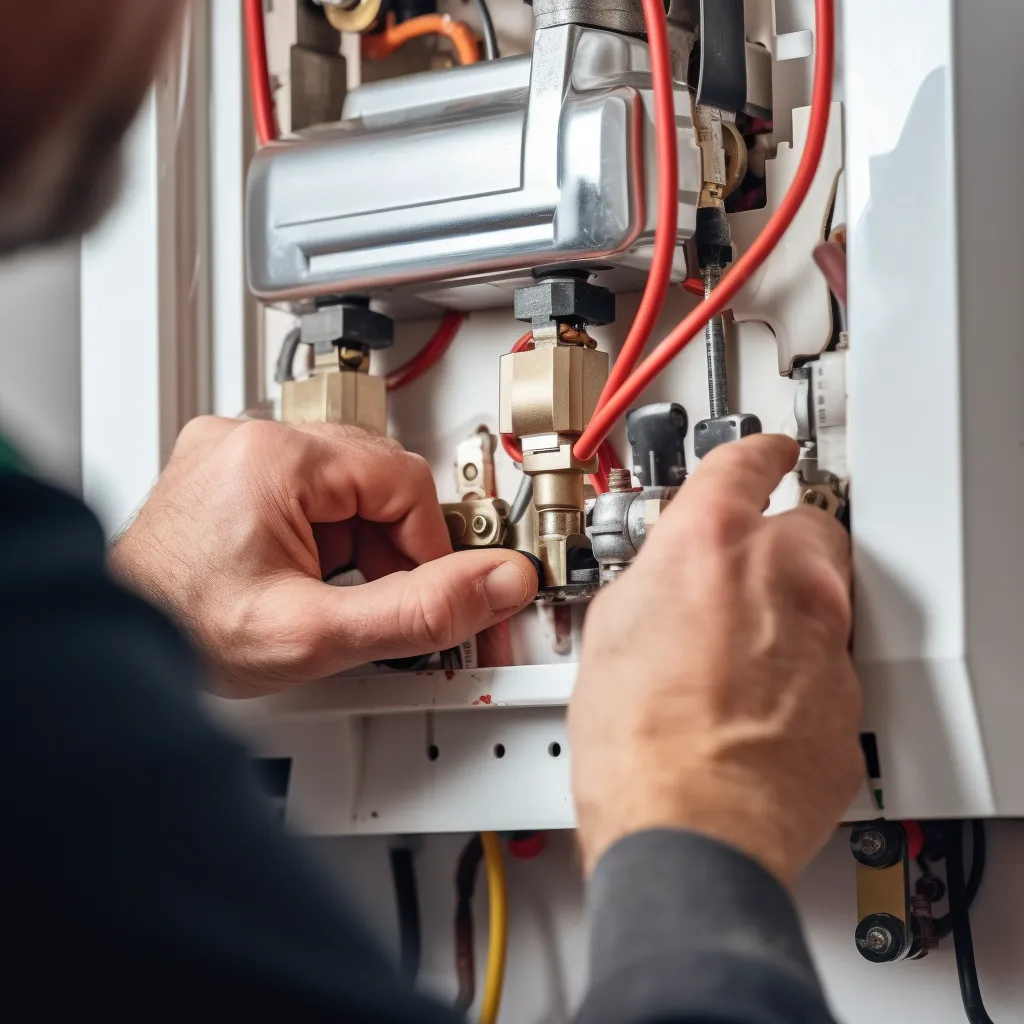
The Impact Of Hard Water On Your Plumbing
Hard water mineralization affects nearly every component of your home's plumbing system, leading to significant maintenance challenges and potential system failures if left unaddressed. Scale buildup gradually reduces pipe diameter, decreasing water pressure and flow rates. This mineral accumulation creates a compound effect throughout your plumbing system,
impacting multiple components simultaneously.
Water Heaters
Water heaters are particularly vulnerable to hard water damage. Scale accumulation on heating elements and tank walls reduces heating efficiency by up to 30% in the first two years of operation. In tank-style heaters, sediment buildup at the bottom can cause:
1. Irregular heating patterns.
2. Premature element failure.
3. Reduced tank capacity.
4. Increased energy consumption.
5. Tank deterioration and eventual failure.
Gas water heaters may experience delayed heating response, while tankless systems often require more frequent descaling to maintain
efficiency.
Pipes and Connections
Mineral deposits within pipes create multiple issues:
1. Progressive narrowing of pipe diameter, reducing water flow by up to 40%.
2. Increased pressure on pipe joints and connections.
3. Accelerated corrosion at connection points.
4. Formation of weak points susceptible to leaks.
5. Reduced effectiveness of pipe insulation.
6. Increased likelihood of pipe freezing during cold snaps.
Fixtures and Faucets
Fixtures experience some of the most visible effects of hard water:
1. Aerator clogging, leading to irregular water flow patterns.
2. Valve seat erosion causing drips and leaks.
3. Mineral buildup around spouts and handles.
4. Discoloration and etching of fixture finishes.
5. Increased wear on washer and O-ring components.
6. Difficulty in maintaining proper temperature control.
Appliances
Home appliances using water face shortened lifespans and decreased efficiency:
1. Dishwashers develop mineral buildup on heating elements and spray arms.
2. Washing machines experience clogged inlet screens and damage to internal components.
3. Ice makers show reduced production and potential mechanism failure.
4. Coffee makers require more frequent descaling.
5. Humidifiers experience blocked pores and reduced output.
What Is The Financial Impact Of Hard Water?
The cumulative effect of hard water damage creates significant financial burden:
1. 20-30% increase in water heating costs.
2. Up to 50% reduction in appliance lifespan.
3. Higher frequency of fixture replacement.
4. Increased water usage due to reduced efficiency.
5. More frequent service calls and repairs.
6. Higher cleaning product expenses to combat scale buildup.
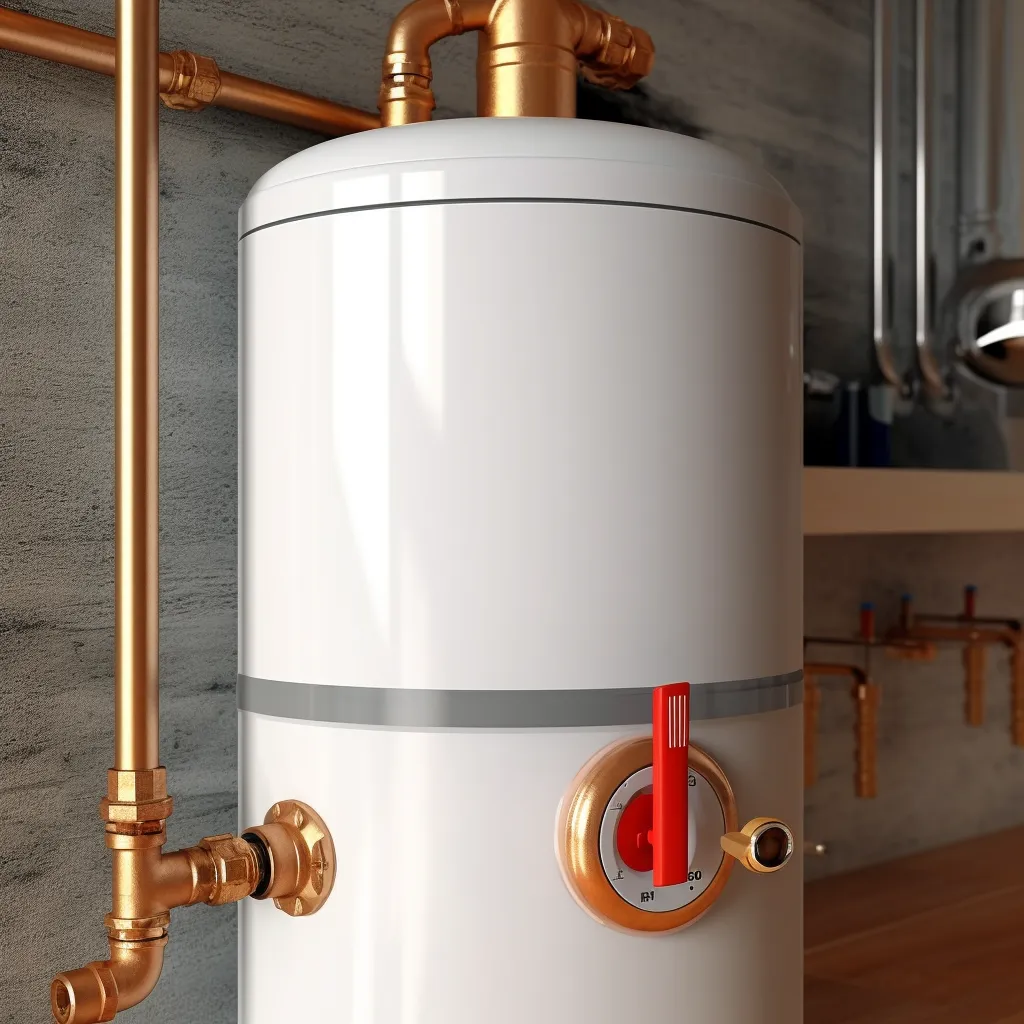
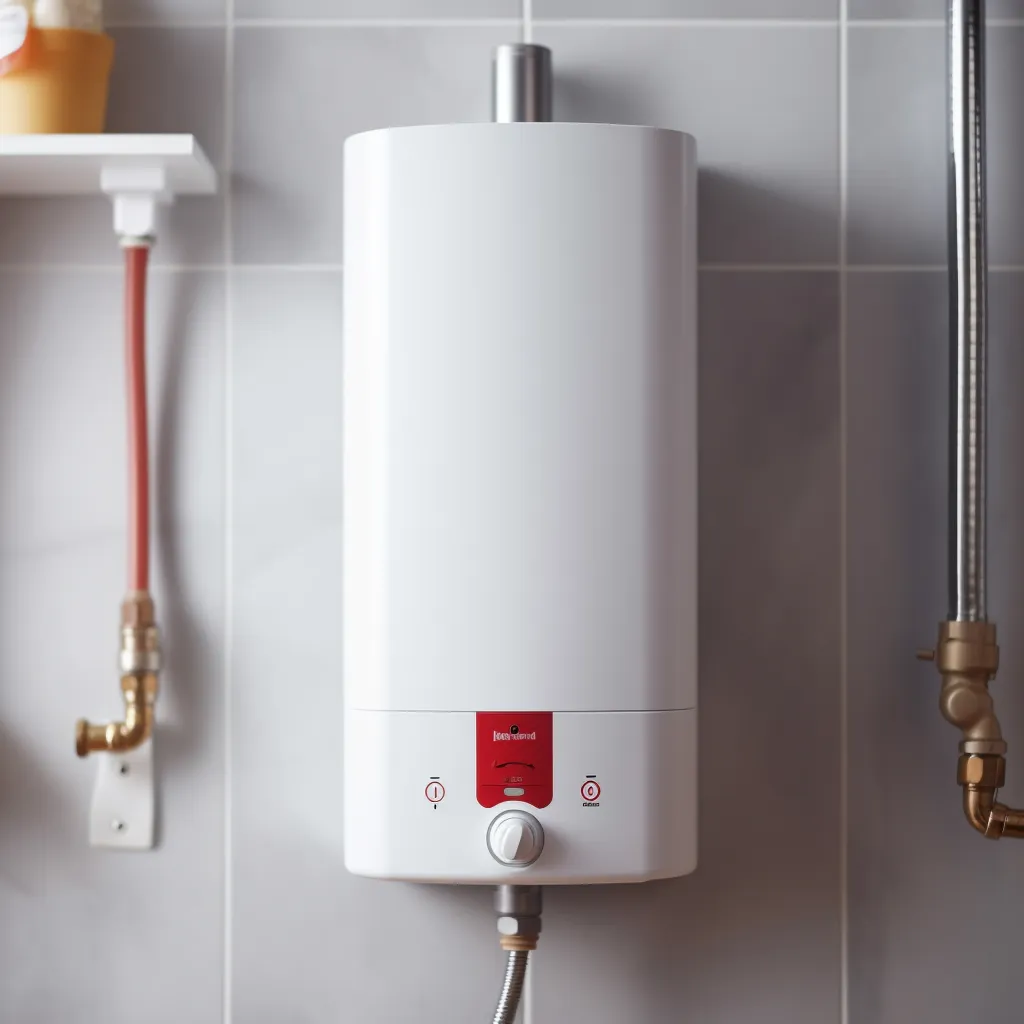
How Preventive Maintenance Strategies Are Essential
Regular maintenance is essential for preventing costly repairs and extending your plumbing system's lifespan. Implementing these
preventive measures can significantly reduce the impact of mineral buildup:
1. Water Softener Installation and Maintenance
Installing a whole-house water softener represents one of the most effective long-term solutions for Chandler homes. These systems remove calcium and magnesium through an ion exchange process, protecting your entire plumbing system. Regular maintenance includes:
1. Checking salt levels monthly.
2. Cleaning the brine tank annually.
3. Replacing resin beads every 10-15 years.
4. Testing water hardness quarterly.
2. Regular Cleaning and Descaling
Periodic cleaning of fixtures and appliances helps prevent
mineral accumulation:
1. Clean faucet aerators and showerheads quarterly.
2. Flush water heaters annually.
3. Clean appliance filters monthly.
4. Inspect and clean toilet tanks twice yearly.
Professional Plumbing Services
While many maintenance tasks can be performed by homeowners,
certain services require professional expertise. A licensed plumber in Chandler, AZ should be consulted for:
1. Annual plumbing system inspections.
2. Water softener installation and maintenance.
3. Pipe descaling treatments.
4. Water heater maintenance and replacement.
5. Complex repairs involving mineral damage.
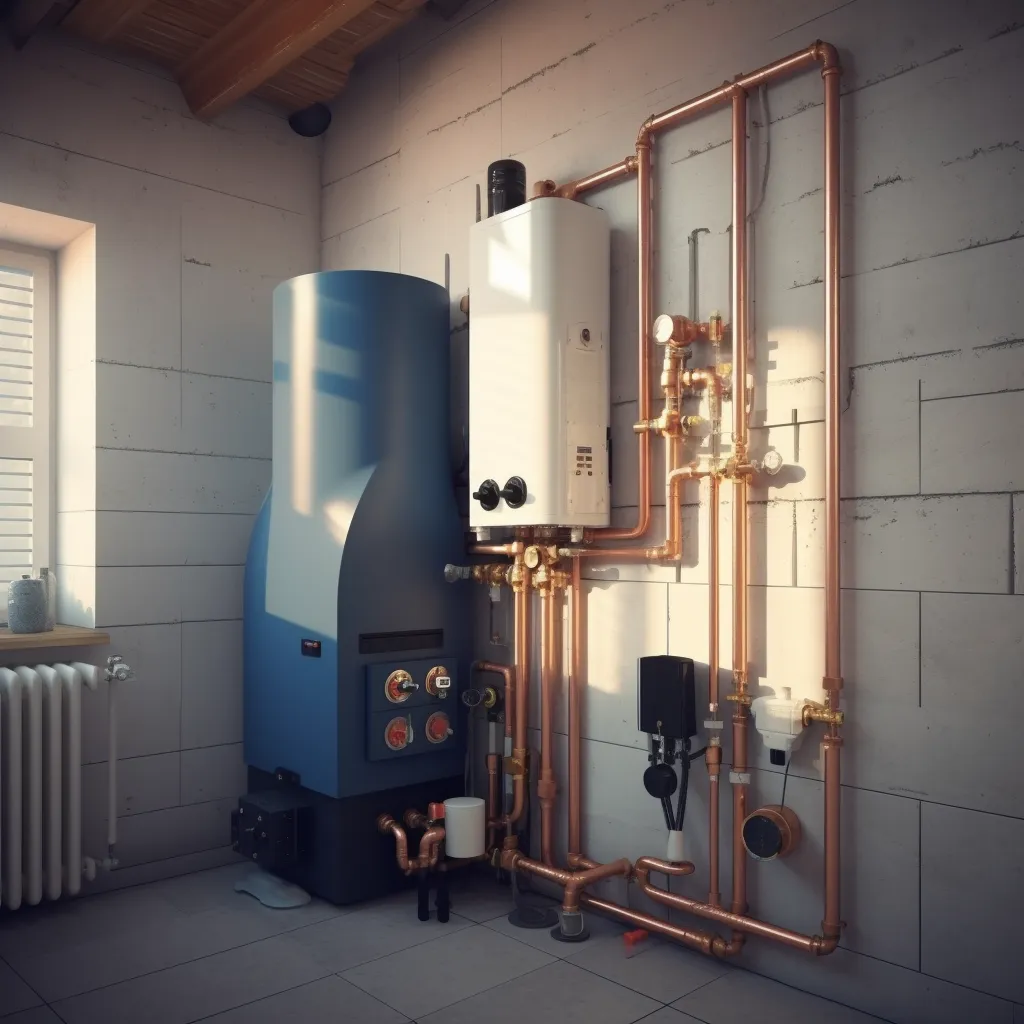
Signs Your Plumbing Needs Attention
Recognizing early warning signs of mineral-related problems can prevent costly repairs and system failures. Here are the key indicators that your plumbing system requires professional evaluation:
Pressure and Flow Issues
1. Decreased water pressure throughout the home indicates widespread scale buildup.
2. Inconsistent water flow from fixtures suggests localized mineral deposits.
3. Sudden pressure changes when using multiple fixtures points to pipe narrowing.
4. Different pressure levels between hot and cold water often indicates heater scaling.
5. Irregular spray patterns from showerheads or faucets signal mineral blockage.
Visual Indicators
1. White or green-tinted mineral deposits around fixtures and drains.
2. Chalky residue on dishes after washing Scale buildup visible on showerheads and faucet aerators.
3. Discoloration or staining on fixtures, especially around water contact points.
4. Cloudy water or particles in ice cubes.
5. Rust-colored water suggesting pipe corrosion accelerated by mineral buildup.
1. Extended heating times for hot water.
2. Running out of hot water more quickly than usual.
3. Popping or cracking sounds from the water heater tank.
4. Fluctuating water temperatures.
5. Visible corrosion or leaks around water heater connections.
6. Higher energy bills despite normal usage patterns.
Appliance Performance
1. Dishwasher leaving white film or spots on dishes.
2. Washing machine taking longer to fill.
3. Ice maker producing fewer cubes or showing reduced efficiency.
4. Water filtration systems requiring more frequent filter changes.
5. Coffee makers brewing more slowly or requiring frequent cleaning.
Plumbing Sounds
1. Whistling or screeching noises in pipes indicating restricted flow.
2. Banging sounds when turning water on or off.
3. Gurgling in drains suggesting partial blockages.
4. Humming from water heaters indicating scale on heating elements.
5. Rattling pipes due to pressure changes from mineral buildup.
Drain Issues
1. Slow drainage in multiple fixtures.
2. Frequent clogs resistant to standard drain cleaners.
3. Gurgling sounds from drains.
4. Bad odors from drains despite cleaning.
5. Water backing up in sinks or tubs.
Cost Indicators
1. Steadily increasing water bills without usage changes.
2. Rising energy costs, particularly for water heating.
3. Frequent repairs on water-using appliances.
4. Multiple service calls for similar issues.
5. Higher cleaning supply expenses to combat mineral deposits.
System Age and History
1. Plumbing systems over 15 years old showing multiple symptoms.
2. Repeated repairs in the same areas.
3. Increasing frequency of maintenance needs.
4. History of hard water issues in neighboring properties.
5. Previous water quality tests showing high mineral content.
Emergency Warning Signs
1. Visible water damage on walls or ceilings.
2. Sudden drops in water pressure.
3. Hot water completely unavailable.
4. Unusual water color or odor.
5. Multiple fixture failures simultaneously.
6. Water meter running when all fixtures are off.
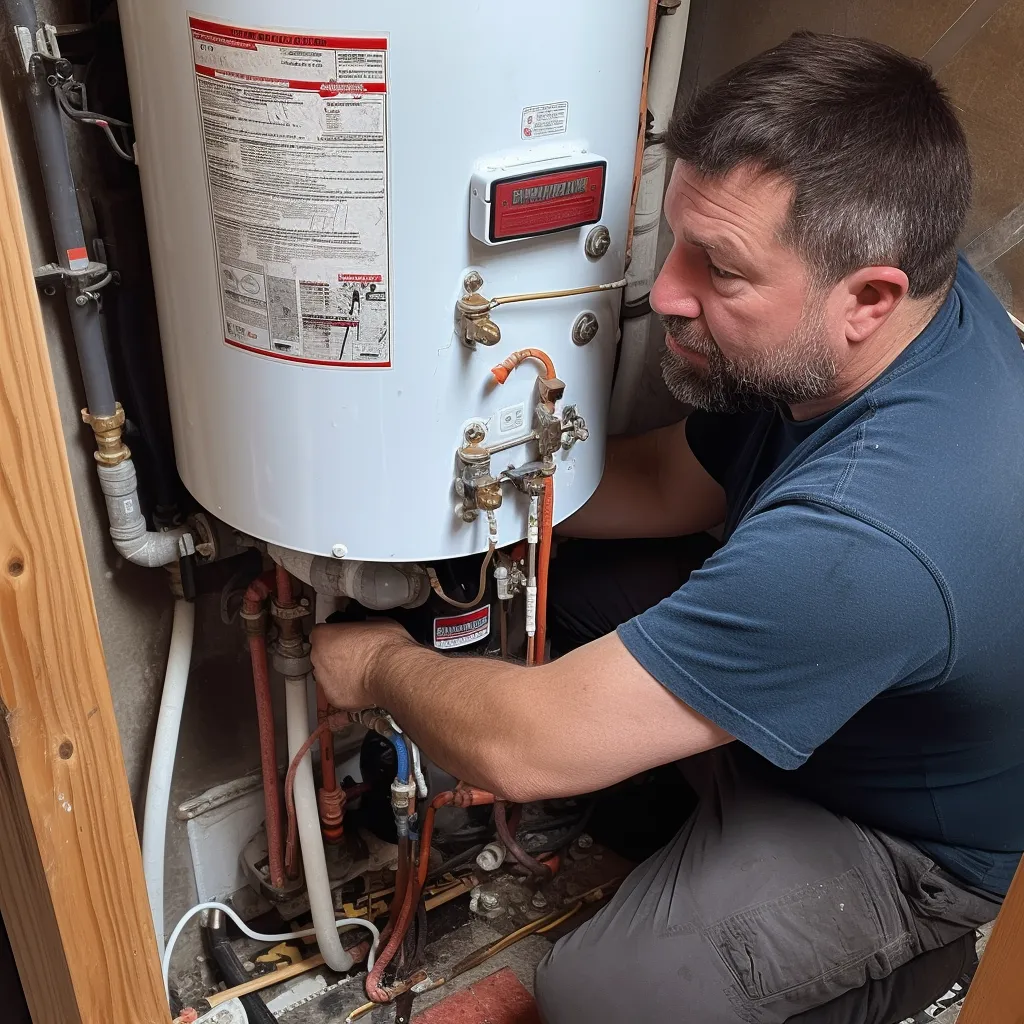
Water Conservation In Hard-Water Conditions
Chandler's desert climate makes water conservation crucial. Hard water can impact conservation efforts through:
1. Reduced appliance efficiency.
2. Increased water usage for cleaning.
3. More frequent fixture replacement.
4. Higher energy consumption.
Implementing water-efficient fixtures and maintaining them properly helps balance conservation with hard water challenges.
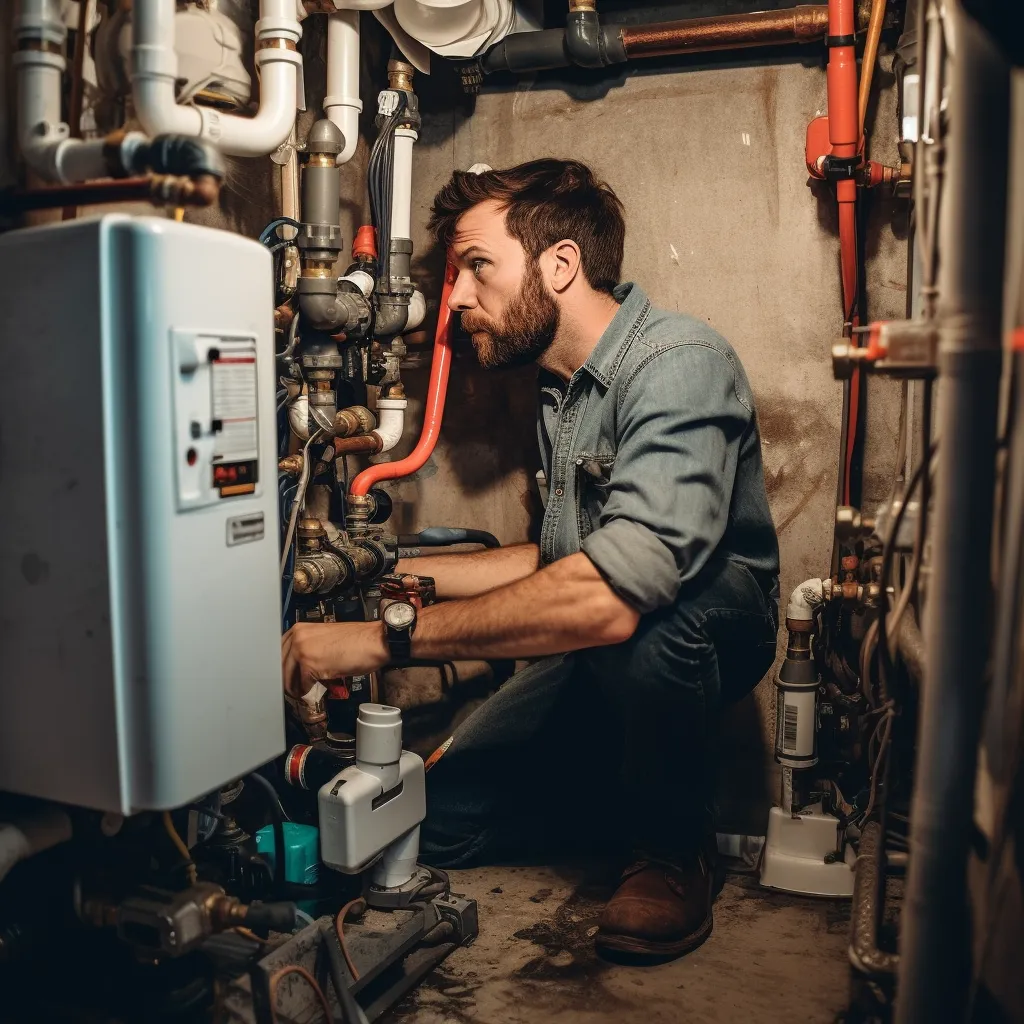
What Are Some Smart Technology Solutions For Hard Water?
Modern plumbing technology offers innovative solutions for
managing hard water issues:
1. Electronic water conditioners.
2. Smart water monitors.
3. Automatic leak detection systems.
4. Water usage tracking devices.
5. Remote shutdown capabilities.
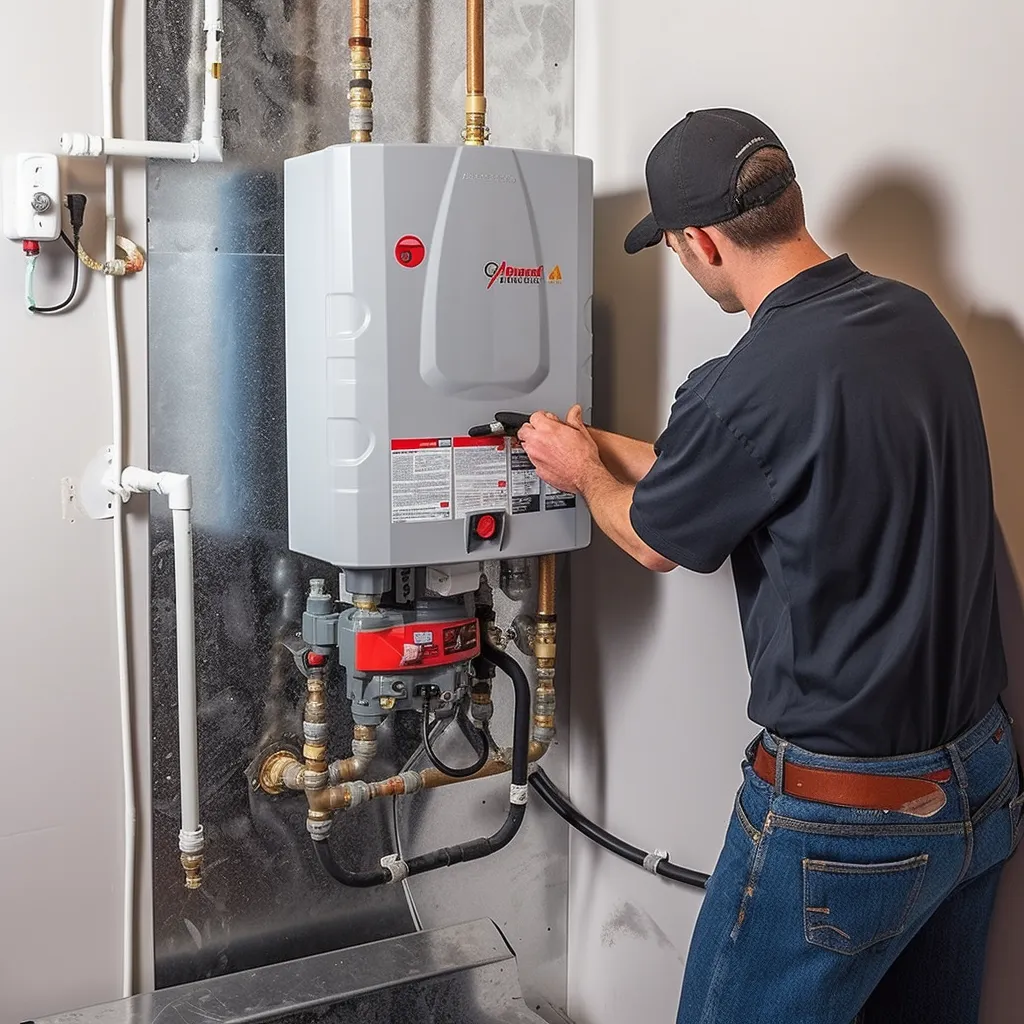
How Does Regular Maintenance Save Money?
Investing in proper plumbing maintenance yields significant returns:
1. Extended equipment lifespan.
2. Reduced repair frequency.
3. Lower utility costs.
4. Improved water quality.
5. Enhanced appliance efficiency.
6. Increased home value.
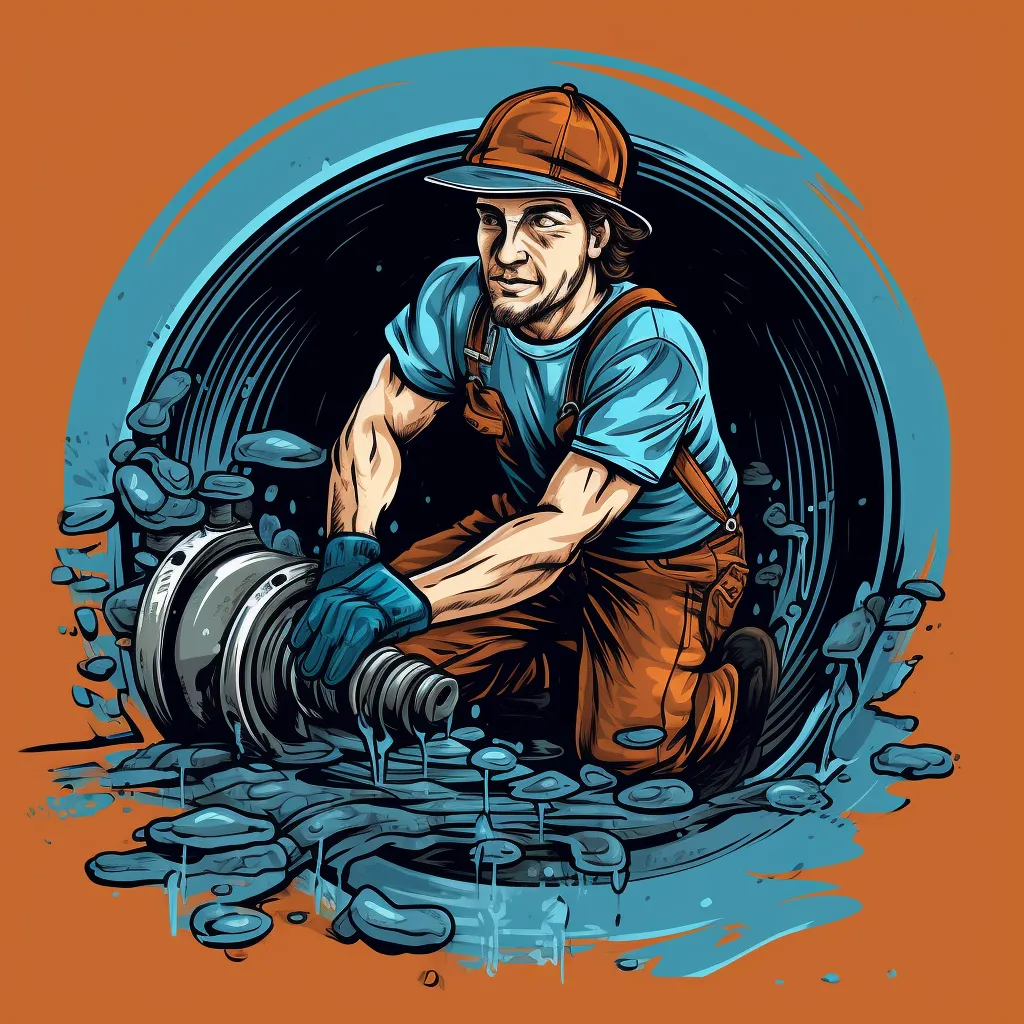
Contact Our Experienced Chandler Plumbers Today!
Don't let Chandler's hard water compromise your home's plumbing system. MIL-SPEC LLC's experienced plumbers understand the unique challenges of maintaining plumbing systems in Arizona's mineral-rich water conditions.
Contact us today for a comprehensive plumbing assessment and customized maintenance plan. Our licensed professionals are
available 24/7 for emergency services and can help protect your investment through expert maintenance and repairs.
Frequently Asked Questions About Hard Water
Q: How often should I have my plumbing system professionally inspected?
A: Annual professional inspections are recommended for homes in Chandler due to the high mineral content in local water. However, homes with older plumbing systems may benefit from semi-annual inspections.
Q: What's the average lifespan of a water heater in Chandler?
A: Due to hard water conditions, water heaters in Chandler typically last 8-10 years with proper maintenance, compared to the national
average of 12-15 years.
Q: Is a water softener worth the investment?
A: Yes, water softeners typically pay for themselves within 3-5 years through reduced maintenance costs, extended appliance life, and lower utility bills.
Q: How can I tell if I have hard water damage in my pipes?
A: Common signs include low water pressure, white scale buildup on fixtures, inefficient water heating, and unusual noises in your plumbing
system.
Q: What maintenance can I do myself vs. calling a professional?
A: While you can clean fixtures, check water softener salt levels, and monitor for leaks, professional expertise is recommended for system
inspections, installations, and complex repairs.
Q: How much does professional descaling cost?
A: Professional descaling services in Chandler typically range from $200-600, depending on system size and severity of mineral buildup.
Q: Will a water softener affect my water pressure?
A: A properly sized and maintained water softener should not significantly impact water pressure. In fact, it often improves pressure by preventing mineral buildup in pipes.
Q: Are there any downsides to softened water?
A: While softened water can feel "slippery" to some users, the main consideration is ongoing maintenance costs and salt replacement. The benefits typically outweigh these minor drawbacks.
Q: How often should I replace my water softener?
A: Quality water softeners typically last 15-20 years with proper maintenance. However, efficiency may decline after 10 years in Chandler's hard water conditions.
Contact Us
GET IN FULL TOUCH
PHONE:+(480) 470-3216
EMAIL:
adam@waterheaterchandler.com
Mil-Spec LLC
Chandler, AZ 85226
